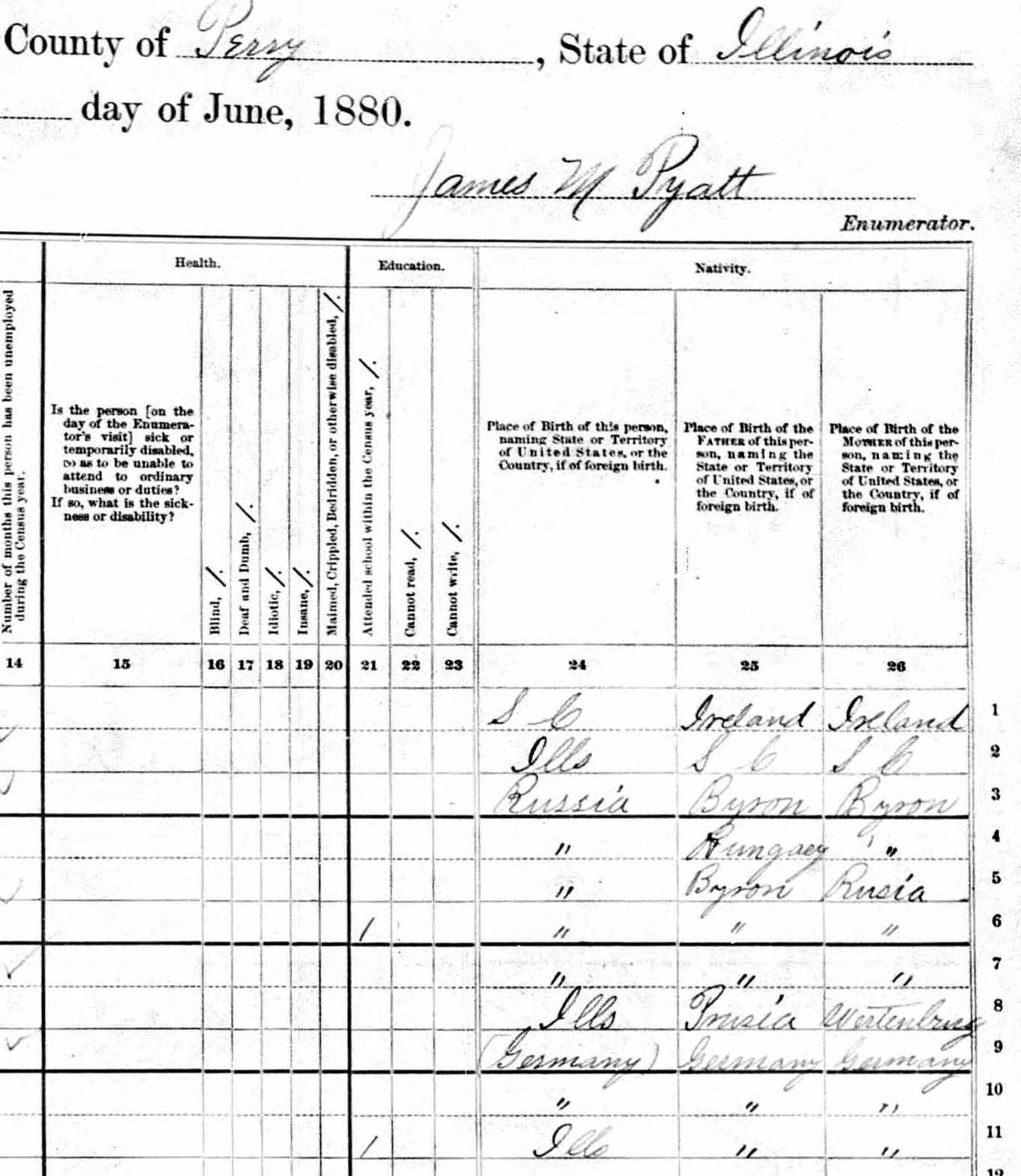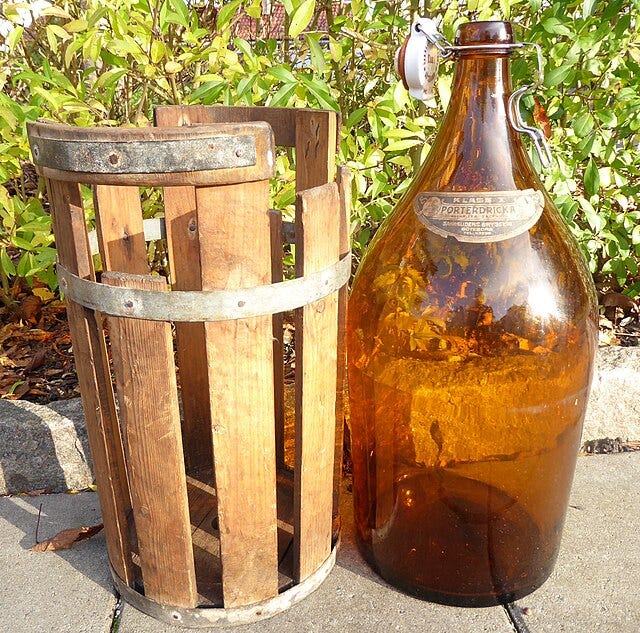Early in my genealogical endeavors, I found within the 1880 census in the column for place of birth the word “Byron.” I then became the worlds expert in places named Byron. It only took about ten years to eventually solve the phonetic error. My Gr Gr Grandfather Johann Martin Mayer had been born in Russia (Eastern Ukraine) but was culturally German naming Byron (Bayern or Bavaria) as the nativity of his parents. This is the classic mistake of a German speaker being recorded by an English speaking census taker. In this case, where were your parents born becomes a phonetic mix up of place names. In 1880 they had been in America only six years so I presume were still getting acquainted with the English language. The German pronunciation is “By urn” and the English census taker recorded “Byron.”

Then there was my Gr Gr Grandmother Alice Morris, in the 1860 census. Unmarried and pregnant, she left home and lived with another family several miles distant. The census taker recorded her name correctly as Alice but due to poor hand writing the Ancestry transcription comes up in search as Allico (since corrected to Allice). I had to go line by line through the entire county census to find her. But it was a good laugh when I did! Substitute similarly shaped letters like o and e in your search if you don’t find it on the first try.

My favorite error is the probate inventory of Gr Gr Grandfather William Morris circa 1864. There was an item listed as “Janes 150.” My cousin Carole and I were having fun reading over all the odd household items and speculated that Janes 150 was a pure ethanol used for “household remedies” and possibly cherry compote. I happened to know that 150 proof was the typical alcoholic content of medicinal alcohol in 1864. I searched hoping to confirm my hypothesis by finding an image of the label or an old patent medicine bottle.
Then I started getting results for the French word yellow or Jaune. Eventually we discovered that a Dame Jeanne, was the 17th century French term to describe an oversized jug that in England would have been known as a Demi-John. Jane was apparently the local colloquial name for oversized jugs and may be tied linguistically to the nearby 17th century French settlement at Kaskaskia. Dame-Jeanne had been shortened to Jane. And 150 was actually $1.50 the value assigned to the lot of containers at estate auction.
Further, the French word for yellow, Jaune is also connected as there are oversized yellow glazed terra cotta from the region of Provence that are are similar phonetically as well as in size. Beware phonetics and linguistic drift from French to English in an isolated French Colonial community.
I taught myself how to transcribe old German cursive writing by doing it letter by letter in a painstaking process. I learned that one side of the family came from Haunsheim on the border between Wurttemberg and Bavaria in the upper Danube valley. An older male cousin, who had been stationed at the large military base in Ramstein was certain it was Ramstein and not Haunsheim. I later gave him inescapable proof that it was Haunsheim and he never spoke to me after that. In fairness to him, Haunsheim written in old German script strongly resembles Ramstein. But now this transcription error has been spread all over the internet and accepted as fact. Fortunately, the error locates the town of Ramstein in Bavaria which is impossible since Ramstein is located in Rhineland-Palatinate. Haunsheim is however located in Bavaria. What interesting transcription errors have you encountered?





The most fun and harmless one was “apothecary shoemaker” on a census record. I should probably have AI give me an image of what that would look like.
Two errors come to mind.
For years, I sought evidence for my Brunelles in Westford MA. Finally, I wrote (yes, this was back in the pre-Internet days) to the Town Clerk and this wonderful woman took the time to go through her records and found the entire family of Brinnells.
Again pre-Internet, at an AFGS lecture in Rhode Island, the speaker talked about needing to say something phonetically that looked odd in a census record. He illustrated with the word "Touan," which was an odd name for a French-Canadian child. Ahh...what the native French speaker was trying to communicate to the English census taker, was that the child was a "twin."